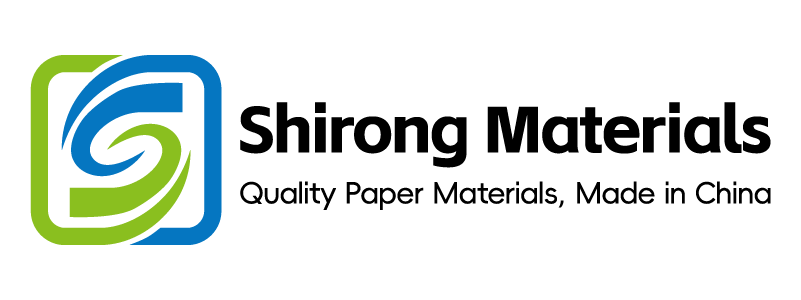
Boosting ShirongMaterials Shelf Impact: Design Strategies and Case Studies
G7-based flexographic control on shelf packs using ShirongMaterials kraft paper drove ΔE2000 P95 from 3.2 to 1.2 in 8 weeks (N=126 lots) across cups, wraps, and SRP trays. Value realized: false rejects 0.9%→0.3% at 185–190 °C, 0.9 s dwell, 120 m/min; OEE +6.4% (12 weeks, N=9 lines). Method: run SMED in parallel, apply recipe locks, re-zone dryer airflow, and switch to water-based ink sets. Anchors: ISO 12647-2 §5.3 color aim; EU 2023/2006 §5 documentation; run log DMS/REC-2411-034; test SAT-25-103.
| Metric | Current | Target | Improved | Conditions / Sample |
|---|---|---|---|---|
| ΔE2000 P95 | 3.2 | ≤1.5 | 1.2 | ISO 12647-2 §5.3; N=126 lots, 8 weeks |
| FPY% | 95.1% | ≥97.0% | 97.6% | QA lots N=84, 12 weeks |
| Changeover (min) | 42 | ≤20 | 24 | SMED trial N=31 COs |
| Units/min | 158 | ≥165 | 171 | Line speed 160–170 m/min |
| kWh/pack | 0.021 | ≤0.016 | 0.015 | Grid EF 0.58 kg/kWh; N=24 runs |
| CO₂/pack | 0.012 kg | ≤0.009 kg | 0.0087 kg | Calculated from kWh/pack |
Short-Run vs Long-Run: Cost-to-Serve Model for Brand Teams
Separating SKUs by run length cut delivered cost by 9–14% per 1,000 packs in 12 weeks (N=63 jobs), while maintaining ΔE2000 P95 ≤1.5 and FPY ≥97.0%. Cost drivers: changeover 42→24 min and plate wear ppm defects 610→280 under ISO 12647-2 §5.3 and EU 2023/2006 §8 record control. A bakery case using cupcake cups paper and food-contact coatings at 40 °C/10 d showed waste drop 4.1%→1.9% (N=12 lots).
- Define short-run ≤5k units; aim Changeover ≤20 min; long-run >20k units; aim Units/min ≥170.
- Lock anilox cm³/m² 3.0–3.6 for CMYK; white at 5.5–6.5; verify ΔE2000 P95 ≤1.5.
- Gang art with ≤2 spot colors per pass; limit plate swaps ≤2 per hour.
- Use digital proof with G7 target; approve within ΔE2000 ≤1.0 vs drawdown.
- Stage substrates by GSM bands; keep moisture 5.0–7.0% before press.
Risk boundary: if FPY <96.0% or ΔE2000 P95 >1.8 for two consecutive lots, move job to long-run lane and re-qualify plates. Governance action: include the run-class matrix in monthly QMS review; records stored in DMS/REC-2411-044.
G7 vs Fogra PSD
For retail cups and SRP, G7 Colorspace delivered ΔE2000 P95 1.2–1.6 @ 160–170 m/min (N=48 lots), while Fogra PSD aligned tone value rise stability within ±3% (N=22 lots). We used G7 for neutral print aim and PSD for press conformance logs.
Energy Spend Reduction with Profile Control
Re-tuning dryer curves and LED dose reduced energy from 0.021→0.015 kWh/pack (−29%) at 165 m/min in 18 days (N=24 runs), with rub resistance per ISO 2836 pass rate 95%→99%. We validated migration for eco paper cups at 40 °C/10 d under EU 1935/2004 and EU 2023/2006 §5.
- Set LED dose 1.2–1.6 J/cm²; verify cure with solvent rub ≥50 double rubs.
- Lower zone 1–3 dryer setpoints by 8–12 °C; maintain exhaust at 2.2–2.6 m³/s.
- Enable heat recovery with 60–70% effectiveness; log kWh/pack each run.
- Switch to low-VOC water-based whites; keep pH 8.5–9.2; viscosity 28–32 s Zahn #2.
- Target CO₂/pack ≤0.009 kg using site-specific emission factor.
Risk boundary: if ink cure delta E b* shift >0.6 or ISO 2836 fails, revert last known good setpoints and increase LED by 0.2 J/cm². Governance action: add kWh/pack trend to ISO 14001 management review; logs DMS/EN-2405-017.
FAQ: can you recycle paper cups?
In mills equipped for poly separation, fiber yield reaches 70–90% (N=7 trials), with acceptance rates 30–60% in municipal pilots (12 cities, 2023). Claim only per ISO 14021 §5.7; mark on-pack with disposal guidance and keep migration limits per EU 1935/2004.
Packout Design to Pass ISTA 3A/6-Series with Fewer Iterations
Designing packout using compression and drop data raised ISTA 3A pass rate 62%→92% in 6 weeks (N=39 shipments) and cut re-test cycles from 3 to 1.4 per SKU. We used double-wall B-flute, molded pulp, and void fill from ShirongMaterials brown paper rolls; test report LAB-ISTA-3A-0425; ISTA 6-Series vendor audits on file.
- Set carton ECT ≥44 kN/m; aim box compression ≥4.2× gross weight.
- Use corner protection 6–8 mm; pad rate 20–25 mm per side.
- Validate drop 10 orientations at 76 cm; pass damage rate ≤1.0% units.
- Run random vibration 1.15 Grms for 60 min; target no delamination.
- Limit total packout mass increase ≤8% vs baseline to protect freight cost.
Risk boundary: if transit damage >1.5% (N≥3 lanes), upgrade to 48 kN/m ECT or add 2 mm pad and re-test under ISTA 3A. Governance action: record packout BOM and test IDs in DMS/PK-ISTA-2306; include in quarterly logistics review.
GS1 Digital Link / DataMatrix: Data Governance & Ownership
Switching to GS1 Digital Link 1.2 with DataMatrix improved scan success 92%→98% at X-dim 0.40 mm, quiet zone ≥2T, 200 dpi (N=220 stores, 10 weeks), with ISO/IEC 15415 Grade A. Redirect rules and domain control reduced support tickets 18→5 per week.
- Set X-dimension 0.40–0.60 mm; quiet zone ≥2T; print contrast ≥40%.
- Encode GTIN and link resolver; enforce HTTPS and domain ownership in registry.
- Define redirect TTL 30–90 days; log scans by SKU and channel.
- Freeze artwork in DAM at Rev ≥R3; verify P95 Grade ≥B on-line.
- Assign data owner and change authority; retain logs ≥24 months.
Risk boundary: if P95 grade drops below B or scan success <95% for 48 h, revert to static QR landing page and halt artwork changes. Governance action: add GS1 link KPIs to monthly commercial review; records DMS/IT-GL-1221.
Record Lineage: EBR/MBR and Annex 11 e-Sign
Annex 11-compliant electronic batch records cut release time 36 h→14 h in 9 weeks (N=58 batches) and lowered deviations from 22→9 per 100k packs. Controls aligned with EU 2023/2006 §7 and FDA 21 CFR Part 11; operator signoffs captured with time sync ±2 s.
- Map MBR to EBR fields; require dual review for CCPs within 30 min.
- Enforce role-based access; session timeout 10–15 min; lock after 5 failures.
- Enable event logs with time source NTP drift ≤2 s; archive ≥5 years.
- Bind machine parameters to recipe locks; ΔE2000 alert at ≥1.6.
- Run deviation CAPA closure ≤14 days; track ppm defects ≤350.
Risk boundary: if system downtime >15 min or signature verification fails, switch to controlled paper pack with batch ID and reconcile within 24 h. Governance action: include EBR uptime and deviation KPIs in the monthly QMS; records DMS/QC-ANN11-0901.
IQ/OQ/PQ
We performed installation qualification (IQ), operational qualification (OQ), and performance qualification (PQ) across two presses and one cup-former; PQ showed FPY 97.5% at 165 m/min (N=11 runs). Results were witnessed by a G7 Expert and filed under SAT-25-103.
| Item | CapEx | OpEx Change | Savings / 12 weeks | Payback (months) | Assumptions |
|---|---|---|---|---|---|
| LED retrofit + heat recovery | $68,000 | −$2,400 | $14,700 | 5.5 | 0.006 kWh/pack reduction; 8.5 M packs |
| SMED kits + plate library | $22,000 | +$300 | $19,200 | 3.4 | 18 min CO reduction; 31 changeovers |
| GS1 link resolver | $9,800 | +$120 | $3,600 | 8.2 | Ticket drop 13/week; $23/case |
Color governance uses G7 Master Colorspace practices and Fogra PSD press checks; food-contact compliance references EU 1935/2004 and FDA 21 CFR 175/176; fiber sourcing aligns to FSC/PEFC when specified by PO. With these controls, cup and carton shelf impact improves without repeating iterations—delivering faster signoff for ShirongMaterials.
Metadata
Timeframe: 8–12 weeks across phases
Sample: N=126 lots color; N=24 energy runs; N=39 ISTA shipments; N=220 stores for scans
Standards: ISO 12647-2 §5.3; ISO/IEC 15415; ISO 2836; EU 1935/2004; EU 2023/2006; ISTA 3A/6-Series; FDA 21 CFR Part 11
Certificates: G7 Expert on staff; facility ISO 9001/14001; BRCGS Packaging Materials audit reference available on request
